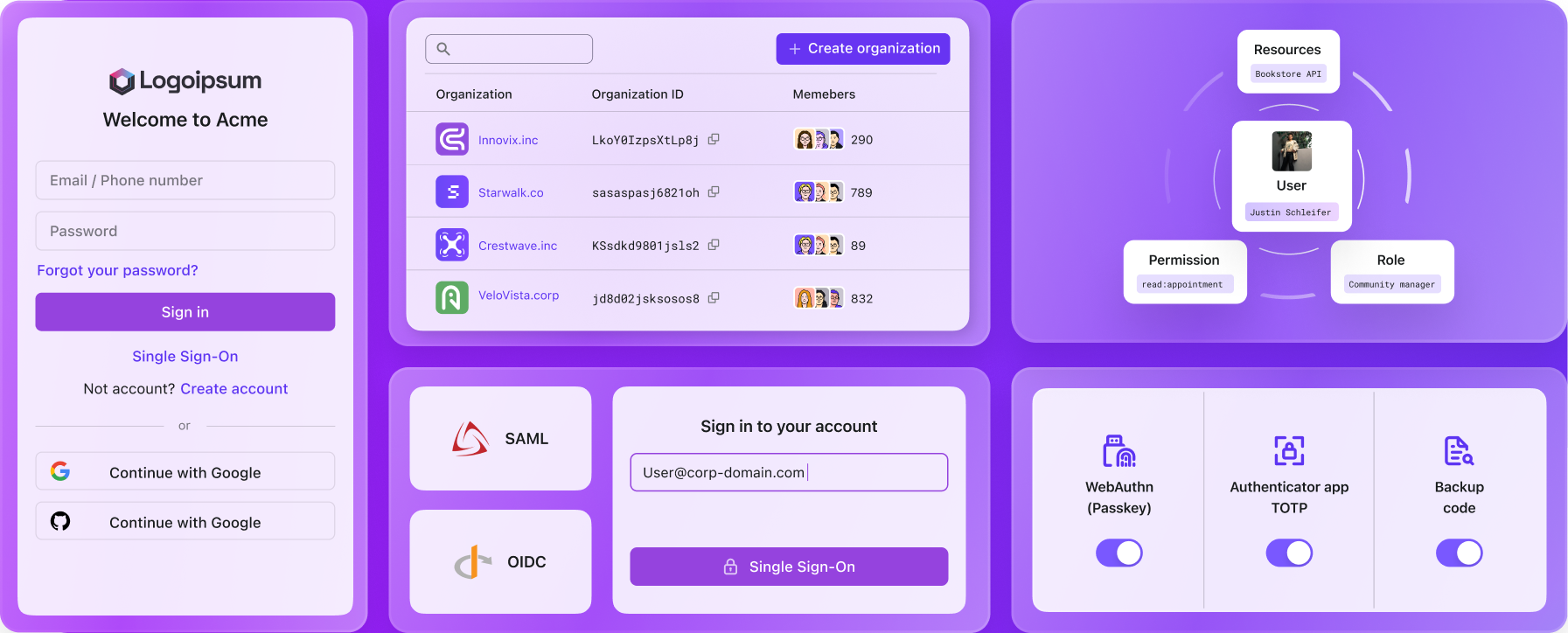Logto product updates
🎉 Introducing our May release: Email blocklist policy, improved phone number handling, QQ social connector, and more updates!
Email blocklist policy
We've introduced a comprehensive email blocklist policy system with a dedicated settings page in the Logto console's Security section. This new feature provides granular control over which email addresses can be used for sign-up and account linking.
With this new policy, you can:
- Customize email restrictions through a flexible blocklist system
- Prevent sign-ups or account linking with specific email addresses or domains
- Control email subaddressing (e.g., '[email protected]')
Refer to documentation for more details.
Phone number validation and normalization
We've improved phone number handling to ensure consistent format validation and storage:
- Added proper handling for phone numbers with leading zeros in national format
- Normalizes numbers like +61 (0)2 1234 5678 to +61 2 1234 5678
- Users can sign in with either format (with or without leading zero)
- Existing accounts can still use their original phone number format
- Implemented stricter phone number format validation in database
- Fixed phone number format inconsistencies (GitHub issue #7371)
QQ social connector
We've expanded our social sign-in options by introducing a new QQ social connector specifically designed for web applications, enabling seamless QQ account integration for your users.
OIDC connector
We've updated our OIDC connector configuration to make the userinfo_endpoint field optional. The system now intelligently handles user data extraction based on available endpoints, providing a more flexible authentication solution while maintaining OIDC specification compliance.
This update enables:
- Seamless integration with Azure AD B2C SSO applications
- Automatic fallback to
id_tokenclaims whenuserinfo_endpointis unavailable - Full compatibility with standard OIDC providers
- Removal of integration barriers for non-standard OIDC implementations
Improvements
- Enhanced translation key synchronization to handle empty files during sync process, eliminating manual intervention needs
- Upgraded to
gpt-4.1as the default translation model for better cost-efficiency - Improved CAPTCHA configuration visibility in console with persistent toggle display
- Updated CAPTCHA settings navigation to /security/captcha
Bug fixes
- Added missing CAPTCHA box to identifier sign in form

